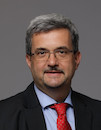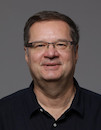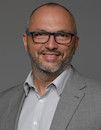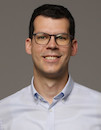Laboratory of Electronics 1
Laboratory exercises
Course Description
Study Programmes
University graduate
General Competencies
Practical knowledge about laboratory instrumentation, and procedures for measurement the parameters and analysis of various analog signal processing circuits, ability to create projects and solutions for different signal processing tasks, and to develop and realize simple SP circuits and to simulate linear and nonlinear analog circuits using CAD programs. Deep understanding of microwave CAD simulation software allowing students to verify results of the design-oriented problems in Microwave Engineering. Practical skills to design basic microwave circuits including a microwave laboratory experience. Practical knowledge about audio signal transfer in audio communications through different audio systems.
Learning Outcomes
- explain operating principles of microwave measuremet equipment (power meter, frequency counter, spectrum analyzer, network analyzer)
- apply microwave measurement equipment to characterize microwave circuits
- show, analyze and interpret measurement results
- apply measurement methods for determining electrical parameters of audio equipment
- compute basic parameters of loudspeakers based on electrical measurements
- introduce to continuous-time, analog electrical filters
- introduce to software for synthesis (FILTERCAD), and analysis (PSPICE) of analog electrical filters
Forms of Teaching
Lectures are organized to support laboratory exercises. The goal is to present measurement equipment and measurement procedures.
Laboratory WorkIndividual practical experience in laboratory in applying the concepts that are taught in Analog and Mixed signal processing, Microwave Engineering and Audiosystems.
ConsultationsOrganized upon request.
Grading Method
| Continuous Assessment | Exam | |||||
|---|---|---|---|---|---|---|
| Type | Threshold | Percent of Grade | Threshold | Percent of Grade | ||
| Laboratory Exercises | 0 % | 80 % | 0 % | 0 % | ||
| Quizzes | 0 % | 10 % | 0 % | 0 % | ||
| Class participation | 0 % | 10 % | 0 % | 0 % | ||
Comment:
No mid-term and final exam. Acquired knowledge and skils are tested at the end of each laboratory exercise. Points acquired at the laboratory exercises pertaining to each of the three theoretical courses related with this one contribute 33.3% of the final mark.
Week by Week Schedule
- impedance measurement by using waveguide hybrid T-junction
- Gunn oscillator
- reflection amplifier
- injection-locking of a microwave oscillator
- measurement of scattering parameters of a microwave transistor
- microstrip transmission line
- measurement on operational amplifiers
- measurement on power amplifiers
- measurement of Thiele-Small loudspeaker parameters
- perceptually coded audio systems
- second-order passive-RLC filter (Biquad)
- second-order LP, HP and BR active-RC filter realization (Biquads)
- measurements of Bode diagrams of analog filters and spectrum of signals and noise using sophisticated laboratory equipment
- active RC analog filter design using synthesis software (FILTERCAD), and analysis of parameters using analysis software (PSPICE)
- time slot for supplementary exercises


 Pristupačnost
Pristupačnost




